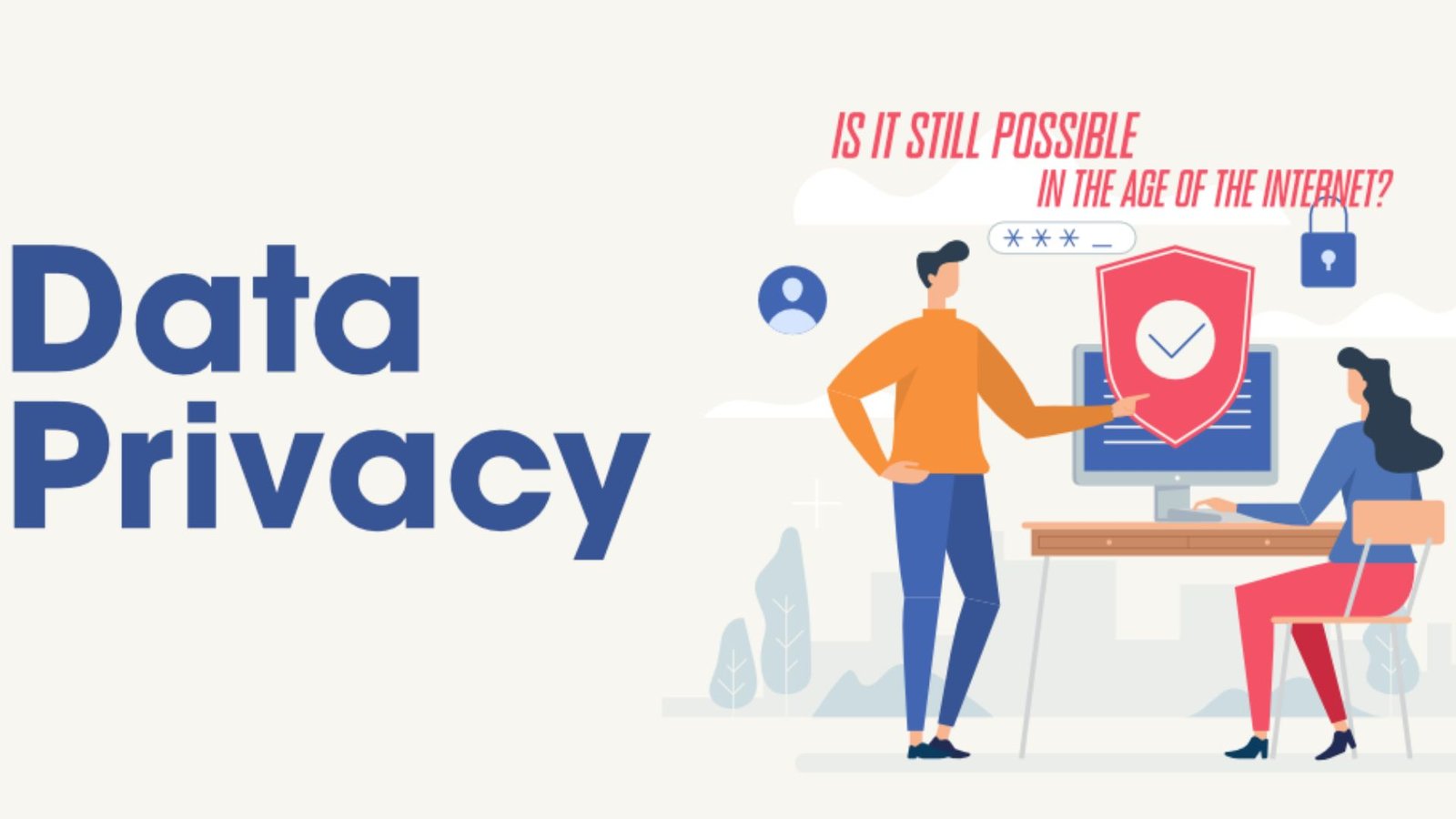Digital Privacy as a Human Right
Digital privacy as a human right is becoming increasingly important in our connected world. With more of our lives happening online, from social media to online banking, protecting our personal information is crucial. This blog post will explore why digital privacy is considered a human right, the challenges we face in safeguarding it, and what we can do to protect our privacy in the digital age.

Why Digital Privacy is a Human Right
Digital privacy as a human right is fundamental for several reasons:
1. Protecting Personal Information
- Personal Data Security: Our personal information, such as names, addresses, and financial details, is often collected and stored online. Protecting this data ensures that it does not fall into the wrong hands or get misused.
- Preventing Identity Theft: By securing our digital privacy, we reduce the risk of identity theft. Identity theft can lead to financial losses and significant personal stress, making privacy protection essential.
2. Ensuring Freedom of Expression
- Safe Communication: Digital privacy allows individuals to communicate freely without fear of surveillance or retaliation. This freedom is crucial for expressing opinions, sharing ideas, and participating in online discussions.
- Avoiding Censorship: When digital privacy is protected, people are less likely to self-censor their online activities. This promotes a more open and diverse exchange of ideas and opinions.
3. Maintaining Autonomy
- Control Over Personal Data: Digital privacy ensures that individuals have control over their own data. This means they can decide what information to share and with whom, maintaining their personal autonomy.
- Protecting Personal Choices: Privacy helps safeguard personal choices and preferences from being exploited or used without consent. This respect for individual choices is a core aspect of human rights.
Challenges to Digital Privacy
Digital privacy as a human right faces several challenges in today’s world:
1. Increasing Data Collection
- Surveillance: Governments and corporations often collect vast amounts of data on individuals. This surveillance can infringe on privacy rights and create risks of abuse or unauthorized access.
- Data Breaches: Data breaches are becoming more common. Hackers and cybercriminals can access sensitive information, leading to potential misuse or identity theft.
2. Lack of Transparency
- Opaque Policies: Many companies have complex privacy policies that are difficult for users to understand. This lack of transparency can make it hard for individuals to know how their data is being used or protected.
- Hidden Tracking: Websites and apps often use tracking technologies to collect data on users without their clear consent. This hidden tracking can undermine efforts to maintain digital privacy.
3. Legal and Regulatory Gaps
- Inconsistent Regulations: Privacy laws vary significantly between countries. This inconsistency can create challenges in protecting digital privacy, especially for individuals using services across borders.
- Weak Enforcement: Even where privacy laws exist, enforcement can be weak. This means that companies or governments may not always be held accountable for violating privacy rights.
How to Protect Digital Privacy
To safeguard digital privacy as a human right, individuals and organizations can take several actions:
1. Use Strong Passwords and Security Measures
- Password Management: Use strong, unique passwords for different accounts and update them regularly. Consider using a password manager to keep track of your passwords securely.
- Two-Factor Authentication: Enable two-factor authentication (2FA) wherever possible. This adds an extra layer of security by requiring a second form of verification in addition to your password.
2. Be Cautious with Personal Information
- Limit Sharing: Only share personal information that is necessary. Avoid posting sensitive details on social media or other public platforms.
- Review Privacy Settings: Regularly review and adjust privacy settings on your online accounts to control who can access your information and how it is used.
3. Stay Informed and Advocate for Privacy Rights
- Educate Yourself: Stay informed about privacy issues and the latest security threats. Understanding these risks helps you make better decisions about protecting your digital privacy.
- Support Privacy Initiatives: Advocate for stronger privacy protections and support organizations working to improve digital privacy laws and regulations. Public support can drive positive change and strengthen privacy rights.
4. Use Encryption and Privacy Tools
- Encryption: Use encryption tools to protect your communications and data. Encryption makes it harder for unauthorized parties to access your information.
- Privacy-Focused Services: Opt for services and applications that prioritize privacy and security. Look for platforms that offer strong privacy policies and minimal data collection practices.
Conclusion
In conclusion, digital privacy as a human right is essential in our modern, interconnected world. Protecting personal information, ensuring freedom of expression, and maintaining autonomy are all crucial aspects of safeguarding digital privacy.
Despite the challenges posed by increasing data collection, lack of transparency, and legal gaps, there are effective ways to protect your digital privacy. By using strong security measures, being cautious with personal information, staying informed, and supporting privacy initiatives, we can work together to uphold this vital human right and create a safer digital environment for everyone.



